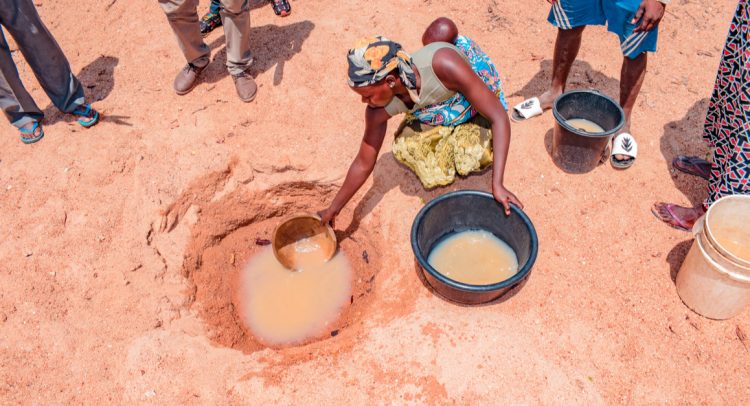To mark the 49th International Women’s Rights Day on 8 March 2024, Environnementales highlights the vital role of African women in the fight against climate change. The devastating effects of climate change on the African continent are amplifying already existing gender disparities, highlighting the urgent need for concerted action to strengthen women’s resilience.
Women are 14 times more likely to die from climate-related disasters than men. This finding by UN Women reflects the growing recognition that the adverse effects of natural disasters disproportionately affect marginalised groups, particularly women and children.
The reason for this is simple. African women, particularly in rural areas, are the pillars of communities, shouldering crucial domestic and economic responsibilities. However, the scarcity of natural resources and climatic shocks are increasing their vulnerability. In Ethiopia, where the worst drought in nearly 40 years has hit, thousands of girls have been forced to drop out of school to take on the increased burden of household and agricultural tasks. They are suffering loss of income due to lower agricultural productivity and are travelling longer distances to access water, while men and teenagers are migrating to urban centres in search of work.
The situation is the same in West and Central Africa, where women are on the front line of these effects of climate change. According to analyses of the impact of climate change, reported by AfricaInteract, a 2% rise in temperature is likely to lead to the disappearance of 10-15% of species in West Africa, and would affect agricultural production by 30%, a sector that employs 60% of the working population.
Women, the key to the future of climate action in Africa
On this Women’s Day, it is essential to recognise the challenges faced by African women in the context of climate change, while celebrating their central role in the search for sustainable solutions. For they bring effective knowledge and skills. In rural areas, women, who are often responsible for the family water supply, have invaluable expertise in rainfall patterns and water conservation practices. With this in mind, involving women in the development of effective adaptation strategies has become a priority in many African countries.
By August 2023, 40 of the 41 African countries that had updated their nationally determined contributions (NDCs) had integrated gender considerations, with 25 countries focusing on adaptation and 12 on mitigation. Notable advances have been made, notably in Nigeria, where the National Gender Policy has been revised and a National Action Plan on the link between gender and climate change adopted in 2022. Similarly, Malawi has set up a National Technical Committee on Climate Change, with representation from the Ministry of Gender, Community Development and Social Security, thereby strengthening its policy and institutional frameworks for more inclusive climate action.
Fanta Mabo

